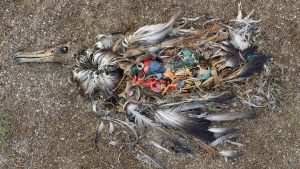Theresa May has declared a ‘war on plastic’, however with the weak and distant goal to ‘eliminate all avoidable plastic waste’ within 25 years. It is another example of politicians claiming to lead while offering too little, too late. There is so much more that we could and should be doing, at all levels, from individual consumers through corporates to councils, national governments and up to the EU and UN.
Many individuals around the world are trying to make changes in their own lives to reduce pollution through our own lifestyle choices and in how we engage as citizens. For decades we’ve supported campaigning groups like Friends of the Earth and Greenpeace, and voted for the few politicians who seem to take these issues seriously. One of my favourite new initiatives is City to Sea, a grassroots consumer campaign set up by the singer Natalie Fee. Do watch her TED X talk: inspiring stuff!
As Hugh Fearnley-Whittingstall shows, corporates can take a lead. He praises the supermarket chain Iceland who have committed to a five year timescale to reduce their use of plastic wrapping, so highlighting the slothful 25 year ambition of Theresa May.
At the opposite end of the spectrum are debates about how we could redesign the macro-economic structures that underpin the global economy. The Ellen MacArthur Foundation is one of a number of organisations promoting a global switch from a linear to a circular economy. This means a shift from the current “take, make and dispose” extractive industrial model to an economy that is restorative and regenerative by design. I’ve blogged before about Hugo Spowers and Riversimple, whose whole business model incorporates this philosophy. (See this article in the Guardian.)
One of the biggest ideas is the switch from sale to lease. So Riversimple are a car company that plan never to sell a car, but to lease them, thus reversing the economic pressure to build obsolescence into the product. Can we imagine clothes, toothbrushes and children’s toys which were all designed to be leased and endlessly reused and/or recycled rather than being sold and thrown away?
There are many changes that could be brought about via taxation. The tax on single use plastic bags is a useful small first step. Increasing taxes on all extractive industries from coal mines, oil wells to iron ore mines would incentivize reuse and recycling as well as more efficient design and resource conservation. Governments, like corporations, will only act if they feel under pressure to do so. So please, keep supporting all those great groups like City to Sea and Friends of the Earth, and try wherever possible to elect politicians who will genuinely seek to take a lead on these issues. (See Molly Scott Cato’s response to Theresa May)

